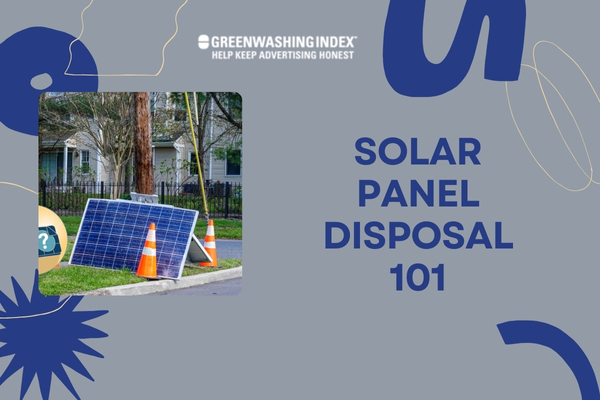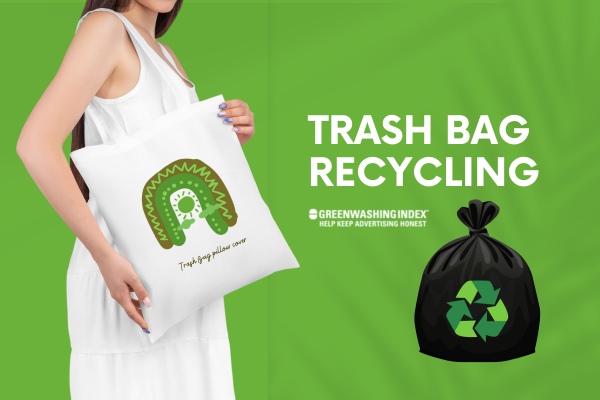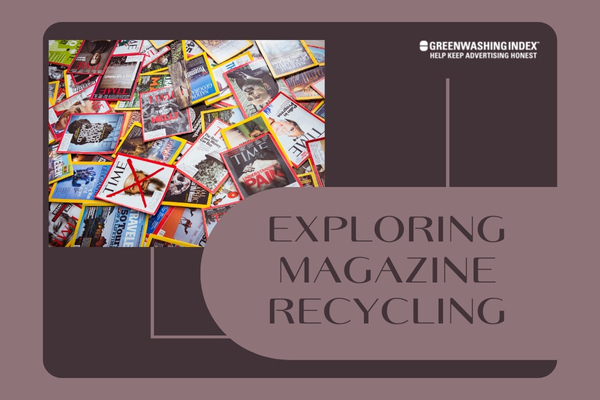Welcome! Are you wondering about what happens to solar panels when they reach the end of their life? You’re not alone. The idea of renewable energy is great for our planet, but many folks forget one thing – eventually, those solar panels need to be disposed of. And that’s where I come in with some must-know info on solar panel disposal.
Solar panel disposal involves a few steps to make sure everything is done right and doesn’t harm our world. When it’s time to say goodbye to your old solar panels, they shouldn’t just be tossed out like everyday trash.
Nope, these panels contain stuff that can be reused and some parts that are bad for nature if they aren’t handled with care. The proper way to do it keep valuable materials in use and leave less junk piling up.
Here’s What You’ll Discover:
- Easy-to-follow tips on getting rid of old solar panels.
- How recycling can help save precious resources.
- Steps for safe removal and disposal of your panels.
- Finding the right folks who can recycle them responsibly.
Current State of Solar Panel Recycling
Some places are really on top of it! They’ve got factories designed just for taking apart old solar panels and saving the bits that can be used again. These spots do an awesome job because they understand how to reduce waste by getting those reusable materials back into the mix for making new products.
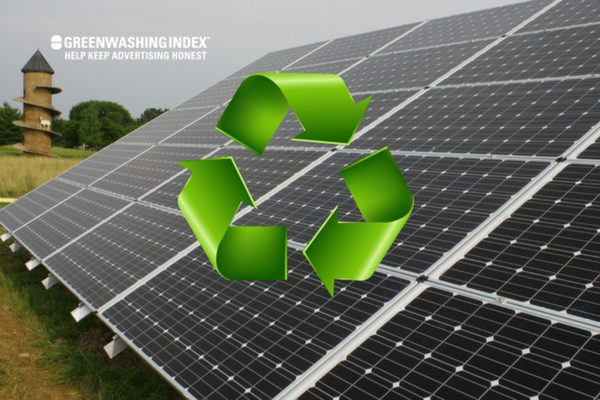
But not everywhere is there yet. Some areas don’t have enough of these recycling plants for solar panels or maybe haven’t figured out the best way to do it yet. And since this technology hasn’t been super popular until recent years, there hasn’t been as much push to recycle until now when folks see there’s starting to be lots more old panels out there.
So really, while many folks across the globe are working hard on recycling these high-tech sun catchers, others still need a nudge or some help getting started with this task. It’s something many people care about though – keeping our Earth green by dealing smartly with stuff when it reaches its end-of-life stage.
It looks like things will only get better from here though! As more folks learn how important recycling is (not just for regular day-to-day items but big things like solar panels too) and start doing their part in their corner of the world, then soon enough everyone will benefit from cleaner living and less junk-harming our planet.
Also Read: Microwave Disposal Guide: Eco-Friendly Recycling Secrets
Importance Of Solar Panel Recycling
Recycling solar panels is a big job. It’s important to think about this because solar panels don’t last forever. Just like many things we use, there comes a time when they’re old and no longer work well. When this happens, we need to deal with them the right way so they don’t hurt our planet.
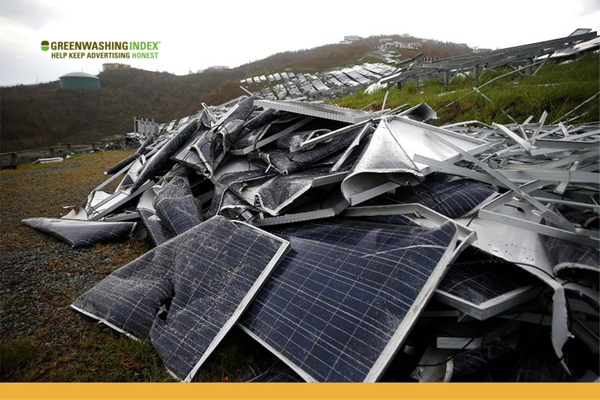
Solar panels are made for the great job of giving us clean energy from the sun. This is super good for our environment because it helps us not to rely on dirty sources of power that can make our air and water not clean. However, if we throw away old solar panels in a bad way, it can undo some of these good effects.
When a solar panel gets too old and can’t do its job anymore, that’s what I call “end-of-life.” But wait! There’s still hope for these panels. By recycling them, we respect their value even when they’re no longer making electricity.
Recycling helps cut down waste and keeps harmful things out of landfills where they could leak into soil and water over time, causing “pollution.” By keeping these materials out we protect animals, plants, and people too!
Plus, when we recycle old solar panels properly, it shows that solar energy isn’t just about making clean power; it includes taking care at every step—from creating them all the way to disposing or recycling them in ways that won’t harm our beautiful Earth.
Economic Benefits Of Recycling
Now let’s talk about recycling old solar panels because believe me when I say there are some serious money-making opportunities here! By taking apart old panels and saving the valuable parts inside of them like silicon and aluminum), jobs pop up, businesses grow – loads of good economic stuff happens!
Have a look at how recycling creates treasure from trash:
- Valuable Materials: Solar panels are made from things that can be sold for money like glass and metals; when we recycle them instead of throwing away everything as waste!
- Job Creation: If more people start recycling these things responsibly people will start getting jobs! This includes folks taking apart the old panels safely collecting those shiny valuable pieces inside organizing everything by type – quite a lot of work means quite a lot of jobs!
- Business Growth: As more places pop up recycling these valuable bits new businesses form around this idea which gives economies everywhere nice little boosts making everyone just that bit richer!
Here’s what goes down economically when you recycle properly:
- Collection Points: Starting points where people bring their old no-good-for-the-sun-anymore panels
- Processing Facilities: Big factories where trained workers break down those big shiny rectangles into smaller shiny rectangles (and other shapes)
- Material Sales: The next step is selling off what was collected metals silicon glass all fetch nice prices on markets!
4 The End Product Manufacturers use recycled junk turned jackpot materials to create new products that could be brand-new sparkly renewable energy equipment even!
Recycling isn’t just about being kinder on our planet; it really opens doors financially It breathes life back into resources making sure nothing goes wasted plus coughs up coin employment broadening horizons any way you look at it money-wise solid win-win!
Also Read: VHS Tape Recycling: Your Essential How-To Guide
Extraction Of Valuable Materials
When you look at a solar panel you might not think there’s much valuable stuff inside but you’d be surprised! Here’s how recycling can give those materials another life:
- Silver: Yep, there’s actual silver in there! It’s used for conducting electricity and can be hard to get our hands on since there’s only so much available on Earth.
- Silicon: This is the main thing in most panels that turns sunlight into electricity. It’s pretty clever stuff!
- Glass: The top layer of most solar panels is glass which protects everything inside but guess what? It too can be recycled!
- Other things: There are also bits of copper and aluminum which are both very useful metals.
To get all these materials back safely without causing trouble or waste takes careful processing which means taking apart each piece by piece safely – but doing so means new products without needing brand new raw materials from nature which saves energy as well as keeping things more balanced with less harm done to different places on Earth.
Just imagine: Old broken down pieces turned into something shiny and new again—like giving an old car part so someone else might drive it!
By taking care with every step in using solar power—including how we deal with ‘old friends’ like retired sun-catching pals—we make sure tomorrow’s world stays just as bright or maybe even brighter than today’s!
Safe Removal Of Toxic Materials
When it comes to solar panel disposal, it’s crucial to handle them right because they’ve got some toxic materials inside. If we don’t get rid of old solar panels the proper way, these dangerous substances can harm the environment and our health. That’s why there are special methods for getting rid of solar panels that make sure these bad substances stay contained.
Here’s a detailed look at why it’s so important:
- Toxic Chemicals: Solar panels have stuff like lead and cadmium in them. These can be really bad for us and animals if they get into the ground or water.
- Safe Handling: When you’re done with a solar panel, you can’t just chuck it like regular trash. People who know what they’re doing need to take it apart so that all the harmful bits can be handled carefully.
- Environmental Protection: We all want clean air, water, and soil, right? That’s why we need good ways to deal with used solar panels – so those toxic parts don’t mess up nature.
So, here’s what has to happen with solar panel disposal:
- Take them away: Get people who know how about this stuff to take your old solar panels down.
- Sort out materials: They have to separate all the different bits in the solar panel – like glass, metal, and toxic chemicals.
- Safe storage: Keep those toxic things somewhere safe where they won’t do any harm while waiting for the next steps.
- Special treatment: The nasty chemicals have got to go through special cleaning or treatment so they’re not dangerous anymore.
- Disposal or Recycling: Finally, once everything is clean and safe, either bury them in a place that’s okay for hazardous waste or recycle what you can.
By keeping all these hazardous materials under lock and key during disposal, we make sure everyone stays safe from pollution caused by used-up solar panels.
Also Read: Tissue Paper Recycling: Yes or No? Find Out Now!
Solar Panel Recycling Regulations
Recycling solar panels is important because it keeps harmful materials out of our environment. But not everyone knows how to do it right. Here’s what I understand about the rules and how to follow them.
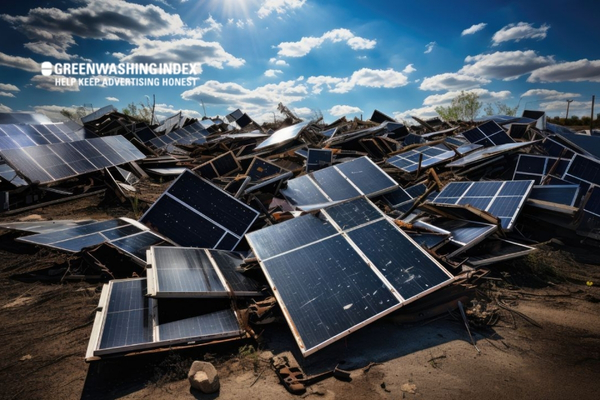
First things first, you need to know that different places have different rules for solar panel disposal. There are international guidelines and national laws that we have to follow.
International Regulations:
On a global level, there’s a treaty called the Basel Convention that controls moving hazardous waste between countries. Solar panels can be part of this because they might have toxic stuff like lead or cadmium inside them. Countries have agreed they need to handle this waste carefully.
National Regulations:
In the United States, each state may have its own take on recycling and disposal of solar panels. For example, California treats old solar panels as hazardous waste while other states might not be that strict.
But no matter where you are, you should check with local environmental agencies or government websites to see what they say about solar panel disposal.
Some key points:
- Know your area’s rules: Find out if your country or state has special requirements.
- Work with certified recyclers: Pick companies that follow the government standards for safe recycling.
- Keep records: You might need proof that you recycled according to the law.
Remember, these rules are there for a good reason – they make sure we don’t hurt our planet while trying to save it with green energy!
Steps For Safe Solar Panel Disposal
Here’s a checklist I’d follow if I had to dispose of solar panels:
- Turn off your system: Make sure there’s no electricity running through those panels.
- Contact professionals: Reach out to experts who know how to handle photovoltaic waste management you don’t want to break something and hurt yourself!
- Packaging properly: If you’re sending them off for recycling, package them so they won’t get damaged on the way.
- Transportation: Whether it’s by truck or some other way, ensure safe transport following local laws.
- Handing over documents: Give all necessary paperwork like warranties or purchase receipts if needed.
- Watch for updates: Rules can change so keep an eye out for newer ways of doing things better when disposing of old tech.
Simple English makes understanding all this easy! Just remember: Dangerous materials mean we must be super careful when saying goodbye to our sun-loving power sources!
Also Read: Tupperware Recycling: Can You Really Recycle Them?
Where To Recycle Solar Panels?
When the time comes to dispose of my old solar panels, I start by looking for places that can recycle them responsibly. Here’s how I find these spots:
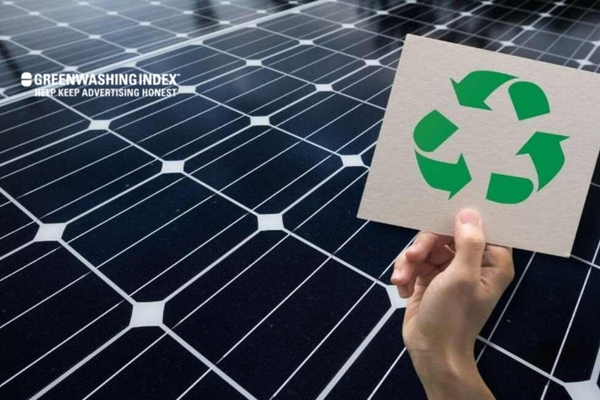
To tackle solar panel disposal, the first thing I do is search for local recyclers who handle this kind of waste properly. Finding these companies requires some effort, but it’s worth it to make sure my old panels don’t harm the environment. Here’s what I do:
- Use Search Engines: A simple online search for “recycling solar panels near me” brings up a list of places that might take them.
- Check Government Resources: Many times, government websites have lists of certified recycling companies. It’s great because they’ve already checked if these companies follow all the rules.
- Ask The Manufacturer: Sometimes, I hit up the company that made my panels because they might have a take-back program or partner with recyclers.
- Talk To Solar Installers: Local solar panel installers often know where to recycle old units since they deal with them a lot.
I check each company’s credentials by making sure they’re certified by relevant authorities and see if they follow international standards for handling photovoltaic waste management.
Also Read: Paint Recycling: The Ultimate Guide to Responsible Disposal
Challenges Of Solar Panel Disposal And Future Perspectives
When it comes to getting rid of old solar panels, we have a few tricky problems to solve. This is because the way these panels are made doesn’t always make it easy to take them apart and recycle them.
Navigating Mixed Materials Dilemma
Older solar panels are often like a puzzle made of many different parts stuck together—a mix of glass, metal, and other stuff that’s not so simple to separate. Tackling this issue is tough for a few reasons:
- Complex Composition: Imagine trying to pull apart a sandwich that’s been melted into one gooey mess—that’s what we’re dealing with here. The materials in older solar panels are so tangled up together that pulling them apart without breaking anything feels almost impossible.
- Separation Struggles: To recycle things properly, we need to split up all these different materials before they go off to their new homes. But when bits are glued together super tight or mixed at the teeny-tiny level, it can really slow down the whole recycling train.
Looking ahead into the future, here’s what’s cooking:
- Design Improvements: We’re thinking about how new solar panels can be designed better from the get-go. If they’re easier to pick apart when their time comes, that’ll save us heaps of headaches.
- New Recycling Methods: Clever folks everywhere are working on gentler ways to separate all these mixed-up parts without causing more trouble for Mother Nature.
The Breakdown Process Analysis
Let’s dive deeper into breaking down solar panels:
- Advanced Separation Techniques: Some methods being worked on include using special liquids that can dissolve away certain parts without harming others or zapping materials with high-tech lasers that don’t touch anything we want to keep whole. It’s like using magic spells from science fiction but in real life!
- Transport Troubles: Once you’ve taken everything apart nicely, you’ve still got the job of moving all these bits and bobs where they need to go next—recycling centers or places where they can be remade into something else. But if your transport trucks get stuck in traffic or there aren’t enough routes going where you need them—a big logjam happens.
Conclusion
In wrapping up, I’d say the journey of a solar panel doesn’t end when its service on the roof is over. The truth is, the responsible handling of out-of-service panels through recycling isn’t just possible—it’s crucial for our environment and economy. It’s about seeing value, not waste.
The goal is clear: ensure that solar energy remains a truly green source of power from its birth to its rebirth in recycling centers.
Key Takeaway Points
- Solar panels are not trash; they’re recyclable.
- Effective recycling mitigates environmental harm.
- Reclaimed materials from panels have significant value.
- Engage with certified disposal services for best practices.

